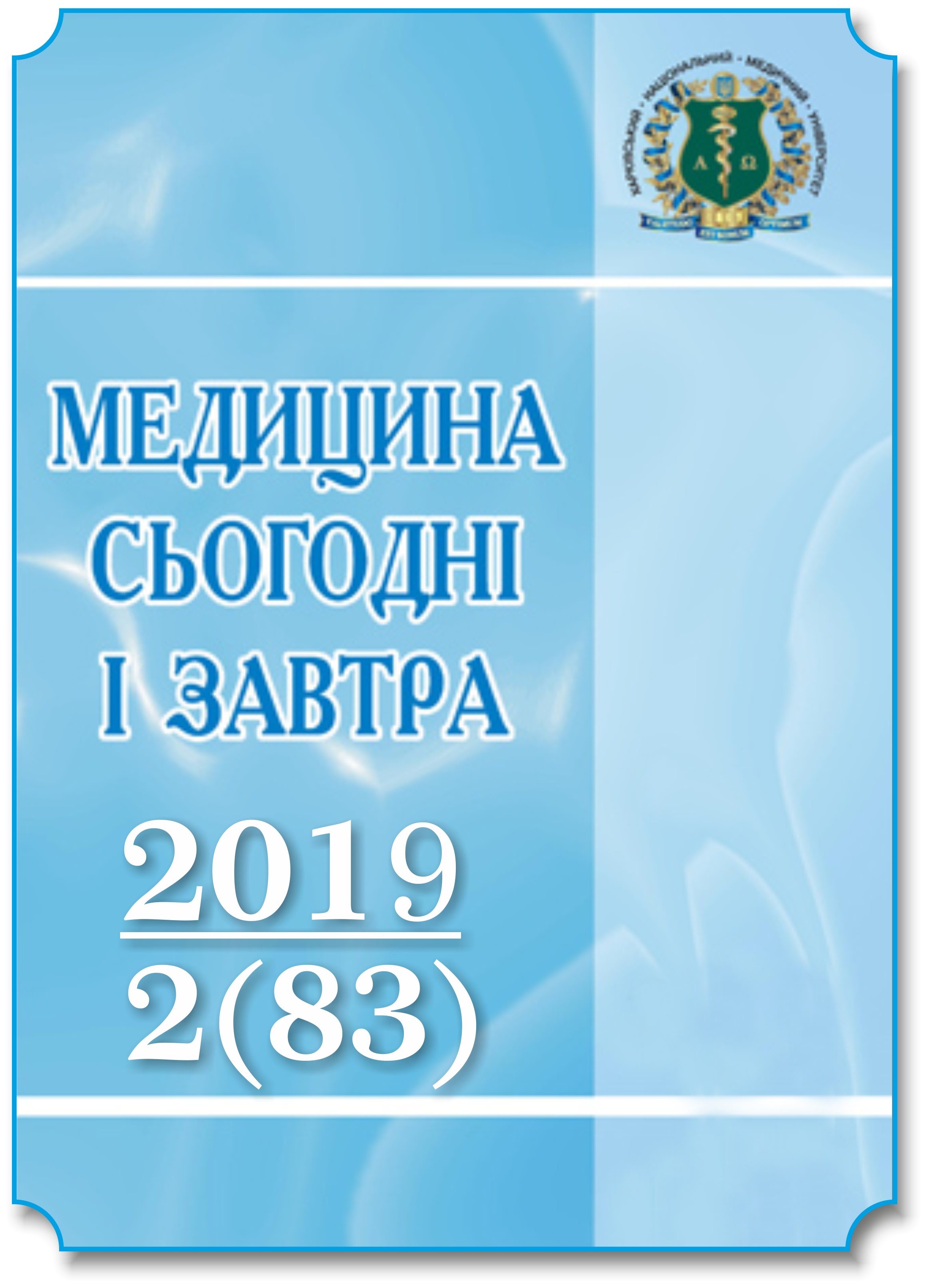Abstract
The study involved 72 patients with mixed dementia complicated by hallucinatory-paranoid disorders. The main group consisted of 49 patients with partial and incomplete medical compliance, the control group consisted of 23 patients with full medical compliance. The examined established features of drug compliance. The factors affecting the reduction of medical compliance were established: refusal / evasion from taking medications and procedures prescribed by a doctor; negative attitude to the drugs and low assessment of their effectiveness; the absence or partial criticism of the disease and its manifestations; alcohol abuse comorbidity; low level of social functioning and social support; low level of therapeutic alliance; high level of negative symptoms.
References
Kvitchataia A.I., Piminov A.F. (2012). Vysokii komplaiiens kak faktor effektivnosti lecheniia [High compliance as a factor in the effectiveness of treatment]. Apteka – Pharmacy, № 871 (50). Retrieved from http://www.apteka.ua/article/magazine/87113 [in Russian].
Kots Ya.I., Mitrofanova I.S. (2007). Komplaientnost kak faktor povysheniia effektivnosti lecheniia bolnykh s khronicheskoi serdechnoi nedostatochnostiu [Compliance as a factor in increasing the effectiveness of treatment of patients with chronic heart failure]. Rossiiskii meditsinskii zhurnal – Russian Medical Journal, № 4, pp. 4–7 [in Russian].
Danilov D.S. (2011). Terapevticheskoie sotrudnichestvo bolnykh shizofreniiei i vracha (znacheniie dlia effektivnosti lecheniia, mekhanizmy formirovaniia i metody korrektsii) [Therapeutic cooperation of patients with schizophrenia and a doctor (importance for the effectiveness of treatment, formation mechanisms and correction methods)]. Nevrolohiia. Neiropsikhiatriia. Psikhosomatika – Neurology. Neuropsychiatry. Psychosomatics, № 2, pp. 17–24 [in Russian].
Surmach M.Yu., Baranski Ya. (Executive Eds.) (2017). Vrach–patsient: sotrudnichestvo v reshenii problem zdorovia: sbornik statei mezhdunarodnoi nauchno-prakticheskoi konferentsii (26–27 oktiabria 2017 hoda) [Doctor-patient: cooperation in solving health problems: Collection of articles of the international scientific-practical conference, October 26–27, 2017]. Grodno: HrHMU, 276 p. [in Russian].
Cramer J.A. (1995). Partial medication compliance: the enigma in poor medical outcomes. American Journal of Managed Care, vol. 1, pp. 45–52.
Kirchner J.T. (2000). Patient compliance in filling new prescriptions. (Brief article). American Family Physician, vol. 62 (1), pp. 268.
Kripalani S., Yao X., Haynes R.B. (2007). Interventions to enhance medication adherence in chronic medical conditions: a systematic review. Arch. Intern. Med., vol. 167, pp. 540–550.
Maruta N.O., Shestopalova L.F., Minko O.I., Lisna N.M. (Compilers). (2011). Komplaiens khvorykh na alkoholnu zalezhnist: psykholohichni chynnyky formuvannia, typolohiia, systema psykhokorektsii (metodychni rekomendatsii) [Compliance of patients with alcohol addiction: psychological factors of formation, typology, system of psychocorrection (methodical recommendations)]. Kharkiv, 24 p. [in Ukrainian].
Maruta N.O., Zhupanova D.O. (2016). Kliniko-psykholohichni osoblyvosti khvorykh na depresiiu z riznym rivnem medykamentoznoho komplaiensa (diahnostyka i korektsiia) [Clinical and psychological features of patients with depression with different levels of drug compliance (diagnosis and correction)]. Ukrainskyi visnyk psykhonevrolohii – Ukrainian Journal of Psychoneurology, vol. 24, issue 1 (86), pp. 5–11 [in Ukrainian].
Bairak D. (2011). Komplaiiens v meditsine: znaniie – kliuch k uspekhu [Compliance in medicine: knowledge is the key to success]. Novosti meditsiny i farmatsii – News of Medicine and Pharmacy, № 4 (354). Retrieved from http://www.mif-ua.com/archive/article/16158 [in Russian].
Banshchikov F.R. (2006). Komplaiiens v psikhiatrii: realnost i perspektivy [Compliance in Psychiatry: Reality and Prospects]. Obozreniie psikhiatrii i meditsinskoi psikholohii – Review of Psychiatry and Medical Psychology, vol. 3, № 4, pp. 60–68 [in Russian].
Vudvord Dzh., Eldridzh D. (2011). Komplaiiens, priverzhennost, sohlasiie – delo ne v nazvanii [Compliance, commitment, agreement, is business not in the name]. Novaia meditsina tysiacheletiia – New Millennium Medicine, № 5, pp. 16–19 [in Russian].
Lutova N.B. (2012). Komplaiiens i psikhopatolohicheskaia simptomatika [Compliance and psychopathological symptoms]. Obozreniie psikhiatrii i meditsinskoi psiholohii – Review of Psychiatry and Medical Psychology, № 3, pp. 59–64 [in Russian].

